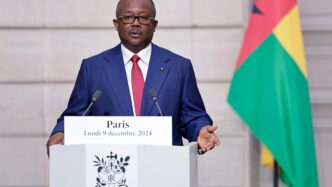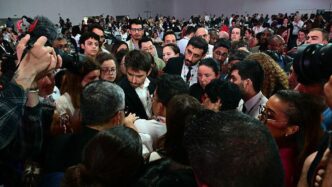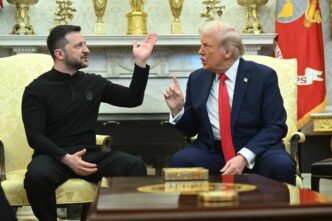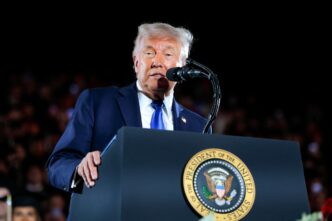Voters in Guinea-Bissau elect their next president Sunday following a peaceful three-week campaign period, hoping to turn the page on the country’s long-running political turmoil, albeit with the main opposition party barred from the race.
Around 860,000 voters will choose between 12 presidential candidates, with stability a major issue given the multiple political crises that have rocked the west African nation since independence, including four coups and numerous attempted coups.
At the top of the list of demands for many is improved living conditions, including better health care, education and infrastructure.
Guinea-Bissau’s population of some 2.2 million is also calling for more jobs and reforms to combat poverty, corruption and drug trafficking.
With nearly 40 percent of the population living in extreme poverty, Guinea-Bissau is among the poorest countries in the world.
It is additionally known as a hub for drug trafficking between Latin America and Europe, a trade fuelled by the country’s long history of political instability.
Polling stations will open at 7:00 am (local time and GMT) and are scheduled to close at 5:00 pm. First results are expected no later than Thursday.
Incumbent President Umaro Sissoco Embalo, 53, is favoured to win in the first round. If he succeeds, he will become the first head of state to serve two consecutive terms since the introduction of the multiparty system in 1994.
His biggest opponent will be opposition candidate Fernando Dias, who has received the support of the powerful PAIGC opposition party, which was barred from the election.
The vote marks the first time in Guinea-Bissau’s history that PAIGC, which led the former Portuguese colony to independence in 1974 and was the country’s longstanding single party, will be absent from the ballot.
It and its leader Domingos Simoes Pereira, who only recently returned from exile, were disqualified from running after the Supreme Court ruled their legislative and presidential applications had been submitted after the deadline.
– ‘Manipulation’ –
Pereira and Embalo are arch political rivals: The last presidential election in 2019 was marked by a four-month post-election crisis as both men claimed victory.
In addition to determining the president, Sunday’s elections will see voters choose all 102 members of parliament.
In 2023, Embalo dissolved the legislature — which was dominated by the opposition — and has since ruled by decree.
The opposition says PAIGC’s exclusion from the presidential and parliamentary elections amounts to “manipulation” and maintains that Embalo’s term expired on February 27, five years to the day after his inauguration.
Despite the tumult, the three-week campaigning period unfolded with a festive atmosphere and concluded Friday without any major incidents or violence.
Lucia Bird, an expert at the Global Initiative against Transnational Organized Crime, said that “in Guinea-Bissau, problems usually arise after elections”.
She said she fears that, as in 2019, allegations of irregularities will occur after the vote.
More than 6,780 security forces, including from the Economic Community of West African States (ECOWAS) Stabilisation Force, have been deployed for the vote and the post-election period.
Guinea-Bissau’s air space, as well as land and sea borders, will be closed all day Sunday.








